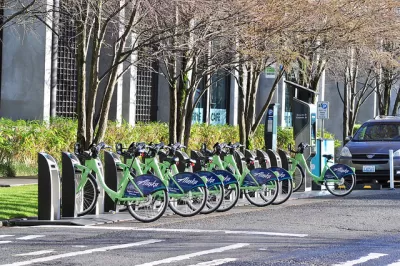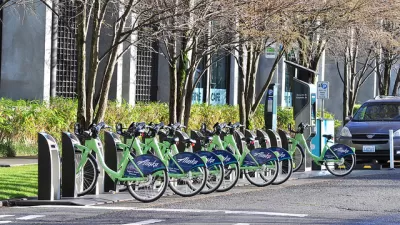The way we measure the success of bikeshare systems could be giving us the wrong idea about their impacts, and about the transportation needs of low-income areas.

An op-ed in NextCity argues that the conversation about equity in bikeshare systems must go beyond ridership rates per demographic.
The article makes six recommendations to better measure the impacts of bikeshare systems, and to improve upon them.
1. Prioritize access, and use "access metrics."
"An equitable system provides equal access to bikes throughout the program area and is big enough to provide meaningful coverage," the article explains. Suggested "access metrics" include the number of bikes available, the number and location of stations, and the percentage of the population served who are low-income and/or people of color.
Other tips include building bike lanes and making connections to transit.
FULL STORY: How We’ll Know When We’re Getting Bike Equity Right

Maui's Vacation Rental Debate Turns Ugly
Verbal attacks, misinformation campaigns and fistfights plague a high-stakes debate to convert thousands of vacation rentals into long-term housing.

Planetizen Federal Action Tracker
A weekly monitor of how Trump’s orders and actions are impacting planners and planning in America.

In Urban Planning, AI Prompting Could be the New Design Thinking
Creativity has long been key to great urban design. What if we see AI as our new creative partner?

How Trump's HUD Budget Proposal Would Harm Homelessness Response
Experts say the change to the HUD budget would make it more difficult to identify people who are homeless and connect them with services, and to prevent homelessness.

The Vast Potential of the Right-of-Way
One writer argues that the space between two building faces is the most important element of the built environment.

Florida Seniors Face Rising Homelessness Risk
High housing costs are pushing more seniors, many of them on a fixed income, into homelessness.
Urban Design for Planners 1: Software Tools
This six-course series explores essential urban design concepts using open source software and equips planners with the tools they need to participate fully in the urban design process.
Planning for Universal Design
Learn the tools for implementing Universal Design in planning regulations.
Gallatin County Department of Planning & Community Development
Heyer Gruel & Associates PA
JM Goldson LLC
City of Camden Redevelopment Agency
City of Astoria
Transportation Research & Education Center (TREC) at Portland State University
Jefferson Parish Government
Camden Redevelopment Agency
City of Claremont





























